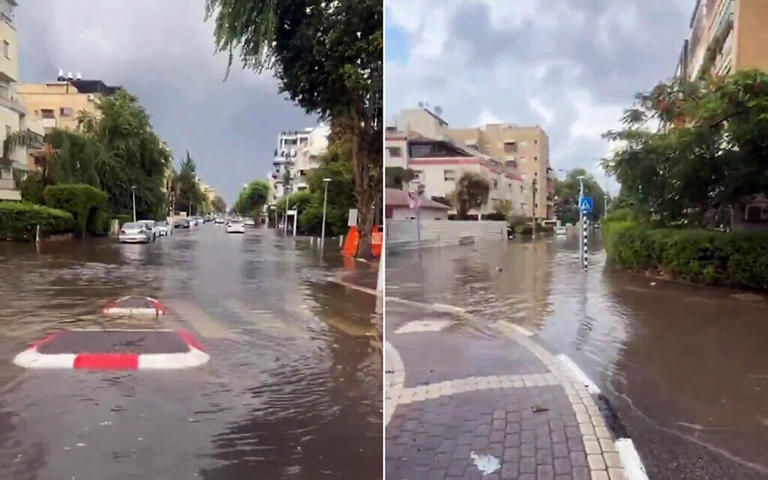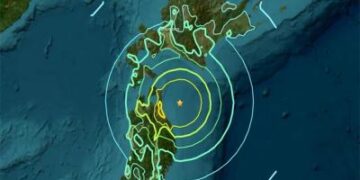Highlights
- 125 mm (4.9 inches) of rain fell in Shavei Zion, breaking the September record.
Previous record: 95.7 mm (3.76 inches) in Gush Etzion, 1932.
Heavy rain caused flooding in Nahariya’s Ga’aton stream.
Haifa banned swimming due to dirty runoff water.
Thunderstorms, strong winds, and high waves up to 2 meters reported in the north.
Southern areas face heat stress instead of rain.
New September Rainfall Record
Northern Israel experienced record-breaking rainfall between Wednesday night and Thursday morning. In the moshav of Shavei Zion, more than 125 millimeters (4.9 inches) of rain fell, setting a new record for September.
The previous record was in Gush Etzion near Jerusalem when 95.7 millimeters (3.76 inches) fell on September 12, 1932.
Where the Rain Fell
The northern coastal plain, Carmel, and Western Galilee saw the heaviest rainfall.
- Acre: 83.1 mm (3.27 inches)
- Kibbutz Eilon (Western Galilee): 12.5 mm (0.5 inch)
- Herzliya (Central Israel): 4.4 mm (0.17 inch)
- Petah Tikva: 2.7 mm (0.1 inch)
From Jerusalem southwards and in most of Israel’s east, no rain was recorded.
Read More: DUCSU VP Promises to Fulfil Commitments Made to Students
Flooding in Nahariya
In Nahariya, drainage problems in the Ga’aton stream caused flooding. Authorities and residents had to deal with local waterlogging after the heavy rainfall.
Weather Warnings and Sea Conditions
The Israel Meteorological Service issued warnings of high seas, with waves reaching up to 2 meters (6.56 feet). Swimming was declared dangerous due to rough waters.
In northern Israel and Samaria, thunderstorms, lightning, and strong winds were expected into early Thursday afternoon.
Meanwhile, the Haifa Municipality banned swimming because the first rains of the season often wash dirty runoff water onto the beaches.
Southern Israel Faces Heat Stress
While the north faced heavy rain and storms, the southern Judean Desert, Dead Sea, and northern Arava experienced heat stress conditions instead.
Impact on Nature
Botanist Yuval Sapir of Tel Aviv University, who manages the university’s botanical garden, said:
“September rain is not that unusual.”
He explained that the first rains do not always stimulate germination, especially when rainfall is intense but short-lived. In such cases, the soil cannot absorb all the water, and only parts of the country received heavy rainfall anyway.
Source: The Times of Israel


















